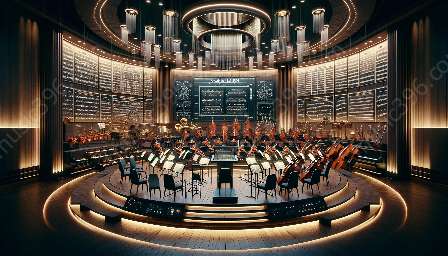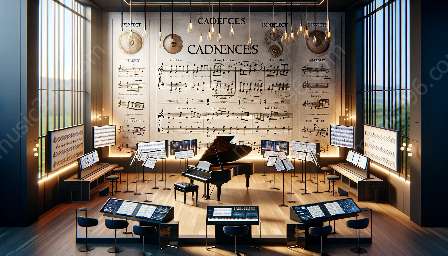Music analysis encompasses a diverse array of theoretical perspectives and methodologies that are essential for understanding and interpreting musical works. This topic cluster delves into the key theoretical perspectives in music analysis and their application to the analysis of musical works and music theory.
Understanding Theoretical Perspectives in Music Analysis
When it comes to analyzing musical works, various theoretical perspectives provide valuable insights into the structure, form, and meaning of the music. These perspectives serve as lenses through which music theorists and analysts examine and interpret compositions. Some of the most prominent theoretical perspectives in music analysis include:
- Schenkerian Analysis: This approach, developed by Heinrich Schenker, focuses on uncovering underlying structural connections and prolongational voice-leading within a musical composition.
- Neo-Riemannian Theory: Neo-Riemannian transformations offer a systematic approach to understanding harmonic relationships and progressions, particularly in the context of tonal music.
- Set Theory: Set theory provides a mathematical framework for analyzing pitch-class sets and their relationships, offering a means to explore the abstract properties of musical pitch collections.
- Transformational Theory: Transformational analysis explores the transformations and relationships between different musical elements, such as pitch, rhythm, and timbre, shedding light on the processes of musical change and development.
- Post-tonal Theory: This perspective encompasses various analytical approaches to music that exists beyond traditional tonal systems, including serialism, twelve-tone technique, and spectral analysis.
Application of Theoretical Perspectives in the Analysis of Musical Works
Each theoretical perspective brings its own unique set of tools and methodologies for analyzing musical works. By applying these perspectives, music analysts can gain a deeper understanding of the compositional techniques, formal structures, and expressive qualities present in a piece of music. For example, Schenkerian analysis may reveal the underlying Urlinie (fundamental line) and deep structures of a composition, while set theory analysis can elucidate the pitch-class relationships and intervallic content within a atonal or post-tonal work.
Furthermore, the application of theoretical perspectives in music analysis allows for meaningful interpretations of a composer's creative choices, helping to unveil the intricacies of musical syntax, phrase structure, and harmonic progressions. Through this analytical process, the theoretical perspectives serve to illuminate how musical elements interact and evolve over the course of a composition.
Integration with Music Theory
Understanding theoretical perspectives in music analysis is closely intertwined with the study of music theory. Music theory provides the foundational knowledge and concepts that underpin the analytical frameworks and methodologies used in music analysis. As such, the integration of theoretical perspectives with music theory enhances the understanding of musical structures, forms, and compositional practices.
By connecting theoretical perspectives to music theory, analysts and scholars can bridge the gap between analytical observation and theoretical explanation. This integration facilitates a more holistic approach to comprehending the intricacies of musical works, enabling a deeper appreciation of the underlying principles governing musical composition and performance.
Conclusion
Theoretical perspectives in music analysis form an essential part of the intellectual toolkit for scholars, musicians, and students seeking to unravel the complexities of musical works. By exploring the diverse theoretical lenses and methodologies, individuals can gain a richer understanding of the design, function, and expressive content present in music. This comprehensive topic cluster serves as a valuable resource for delving into the theoretical foundations of music analysis and its application to the study of musical works and music theory.

















































